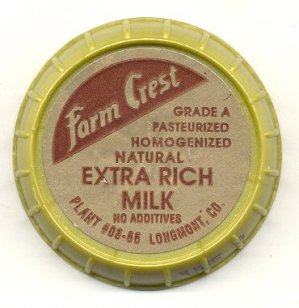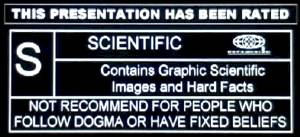 The six-disc changer in my 4Runner’s console stereo dropped dead late last summer, after serving me well for eleven years. Considering the mechanical nightmare the damned thing was internally, I’m a little surprised it lasted as long as it did. So for about ten months now, I’ve been reduced to listening to the radio, in a town where radio is not a priority. (Irony, however, is a Colorado Springs delicacy: With just about every other town and county but Denver voting to ban legal marijuana, the home of Focus on the Family looks like it will soon be the highest city in the state.)
The six-disc changer in my 4Runner’s console stereo dropped dead late last summer, after serving me well for eleven years. Considering the mechanical nightmare the damned thing was internally, I’m a little surprised it lasted as long as it did. So for about ten months now, I’ve been reduced to listening to the radio, in a town where radio is not a priority. (Irony, however, is a Colorado Springs delicacy: With just about every other town and county but Denver voting to ban legal marijuana, the home of Focus on the Family looks like it will soon be the highest city in the state.)
I haven’t listened to pop radio in the car for maybe 25 years, since I started recording mix tapes off vinyl. I expected to develop (however unintentionally) an appetite for recent pop music. Hey, it worked with Madonna in 1986. Not this time. I found one band worth investigating further (Owl City) and bought four, count em, four MP3s. A couple of Owl City tracks, Kelly Clarkson’s “Catch My Breath,” and Two Door Cinema Club’s moody song “Sun,” which I bought because it contains the word “drumlins.” Just that, based on ten months of mostly cringing and reaching for the volume knob.
Now I can’t even do that.
After punting for far too long, I went down to Car Toys earlier today and had them install one of these. It had a Bluetooth phone feature I wanted, since I don’t like manhandling a phone in the car. It plays MP3s from a thumb drive, and every MP3 I have that’s worth hearing will fit on a thumb drive. (Not a big one, either.) It looks for all the world like a smartphone held sideways, complete with the little four-square menu button. All it lacks is a volume control knob. It has a mute button, which will come in handy, just like it does when The Weather Channel plays that excruciating commercial about the poor woman who’s been falling on her kitchen floor and failing to get up since before they tore down the Berlin Wall. It has firmware to update, God help us, and…cripes, I wasn’t ready for this…a remote.
At the risk of sounding like an MP3 on autorepeat, well, all it lacks is a volume control knob.
I’ll get used to it. (I got used to Madonna in 1986, after all.) Mostly what I want out of it is hands-free phone calls and MP3 playback. I know why it doesn’t have a knob: Knobs take room on the panel that you could otherwise fill with icons. And a knob would add another 85.67 cents to the UMC. Besides, knobs are just so 1952.
Just like me.
 Oh me, oh my, oh me, oh my…I’m just such a bad boy. Last year, I
Oh me, oh my, oh me, oh my…I’m just such a bad boy. Last year, I  Say what you want about cold fusion; it’s been a great show and a huge amount of fun. If time allowed I would read more on it; right now, the only book I’ve been through is
Say what you want about cold fusion; it’s been a great show and a huge amount of fun. If time allowed I would read more on it; right now, the only book I’ve been through is 









